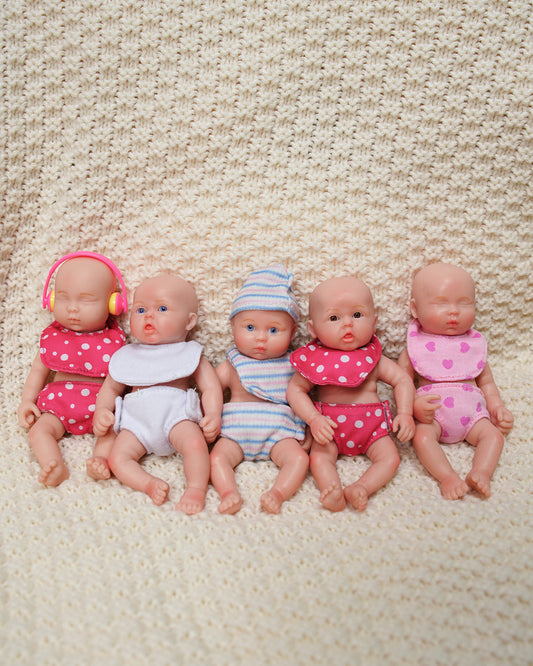What You Need to Know About Establishing Breastfeeding in the First Month of Life
Breastfeeding in the first month is a very important process for both the mother and the baby. If it is not done successfully, it can lead to problems including poor weight gain in the baby and soreness and infection for the mother. This article will help you understand what you should do to ensure successful breastfeeding from day 1.
One of the most common mistakes that new mothers make is believing that they must feed their babies on a strict schedule. This leads to frustration because some babies are hungrier than others and they need to be fed more often. It doesn’t matter what weight or size they were at birth, in fact smaller weight babies can be twice as hungry as larger babies. The best way to go about this is by listening to your baby’s cues and feeding them when they are hungry, not when you think they should be fed or when it's time for another feeding session on a schedule. They may sometimes want comfort from you, and it’s all a guessing game at first. Provide skin-to-skin contact with your new-born so that your body’s warmth can be passed on to them through close physical contact. This helps the hormones for milk production and will calm baby and help them latch on.
When your baby cries, feed them! It is okay, you can’t spoil a baby or over feed them.
Breastfeeding in the first month
At the first week of breastfeeding, you will be exclusively breastfeeding your baby. This means that you should not introduce any other food or drink to the baby. As previously stated, feed on demand. This doesn’t mean to feed them as soon as they wake or make a sound, but it should be the first thing offered when they cry, providing the obvious pain or dirty nappy has been explored. The second week will see maybe a routine of sorts appearing. Remember, breastfeeding is still being established and the supply and demand is still working itself out. The baby is undergoing rapid growth in the first year, so the demand is always changing. The third and fourth week should see you recovering from the birth physically and able to feel a bit more human again, but depending on the type of birth you had, it may take longer.
You should still feed on demand, but you may notice the baby can go for longer periods in between. They will probably have a few periods of 3-4 hour sleeps but very often they will ‘cluster feed,’ particularly in the evening. This fussy time is often referred to as the witching hour and can be a very frustrating and confusing time for new parents. It can be tempting to think they are starving, and you don’t have enough.
Here are some things that I found helpful and a lot of other parents.
Babywearing – wear the baby in a carrier close to you. You will have your hands free and baby will enjoy the closeness, warmth and smell you provide. It can be done by anyone.
Movement – gentle movement will calm your baby. They usually like to be held and moved around. They’ve come from being cocooned in your womb and your gentle movement as you walked. Walking, rocking, jigging, swaying, dancing, going for a car ride, buggy ride, all of these will help.
Skin to skin contact
Water – as in bathing the baby in a tub, the freedom of the water and warmth will calm the baby.
Baby massage and baby yoga – babies get a lot of trapped wind, so massage and movements will help move the wind along.
How breastfeeding works
Your hormones will be working together with your body to make milk. If the baby does not drink any milk, there will be more produced, but after a few days it reduces and then will eventually stop. Once the baby feeds, it sends a message to the body to produce more. The more baby feeds, the supply goes up. It’s simple supply and demand. That’s why we say not to top up with formula or water, just allow the baby to feed and even if initially there is not quite enough, more will be on the way. More of the hormone Prolactin is produced at night, so that explains why nighttime is your baby’s favourite feeding time.
Sometimes it seems like your baby is always hungry and your breasts feel soft and empty. This doesn’t mean you don’t have any milk! Empty feeling breasts are a good sign, and more milk is there. It also doesn’t matter what size your breasts are, whether you only have one, or have had certain cosmetic procedures. Check with your Midwife or Doctor if you aren’t sure.
If you think you have a supply issue, or baby has a tongue tie or problems latching, contact a lactation consultant or take some help from a medical professional.
Breastfeeding essentials
I know all you really need are a baby and at least one breast, but there are things you can get that will make the experience more comfortable and easier.
The nursing pillow is a must-have for breastfeeding mothers. It can be used to help position the baby and to support the mother's breast. I found it useful to help support my arm and shoulders too.
Nipple cream is an absolute must-have for breastfeeding mothers. It can help soothe sore nipples and prevent them from cracking or bleeding.
A nursing cover is a great way to maintain privacy while feeding your baby. You can use it to shield your breasts from view, as well as keep them warm, dry and clean. I wouldn’t say it is an essential, but it makes a lot of women feel more comfortable.
How To Tell if Your Baby is Getting Enough Breast Milk
Breasts don’t come with a see-through window and a measuring guage, but there really isn’t the need. If the baby is passing urine, pooping, and gaining weight appropriately then they are getting enough. Remember the poo will change colour from a black initially to green then to yellow with a mustard seed texture. It will be loose but can vary slightly in texture. They should have some settled periods in a 24-hour period and should wake for their feeding times.
What about pumping
You should try and avoid pumping milk to give via a bottle for the first month. You can express for comfort if you are engorged, but try not to pump too much as it will just make more milk. This is so that you can get that supply and demand rhythm established and get used to feeding together. If your partner or family want to get involved, there are plenty of other ways like changing, bathing, soothing, they can even get up in the night and bring baby to you for feeding and then settle them afterwards so you can get some rest.
Conclusion: The Best Advice for Breastfeeding Mothers in the first month
Breastfeeding is a great way to bond with your baby, and it also has many health benefits for both you and your child. There are plenty of things that can make breastfeeding difficult, but it’s important to know that there are also ways to get around these challenges. A support network is invaluable and can be friends, family, other Mums and breastfeeding support groups.
The best advice for breastfeeding mothers is to be patient, persistent, and supportive of themselves. They should also know that there are a lot of resources available for them like lactation consultants who work in hospitals and clinics. It is very important for mothers to be aware of their rights as well as the laws that protect them when they breastfeed in public or at work.
About the contributor:
Jenny, a Mum of 3 school aged children and a Nurse in a GP practice. When she has any free time which is not very often, she enjoys amateur dramatics, crafting and curling up on her sofa with a blanket and her cocker spaniel Archie.






